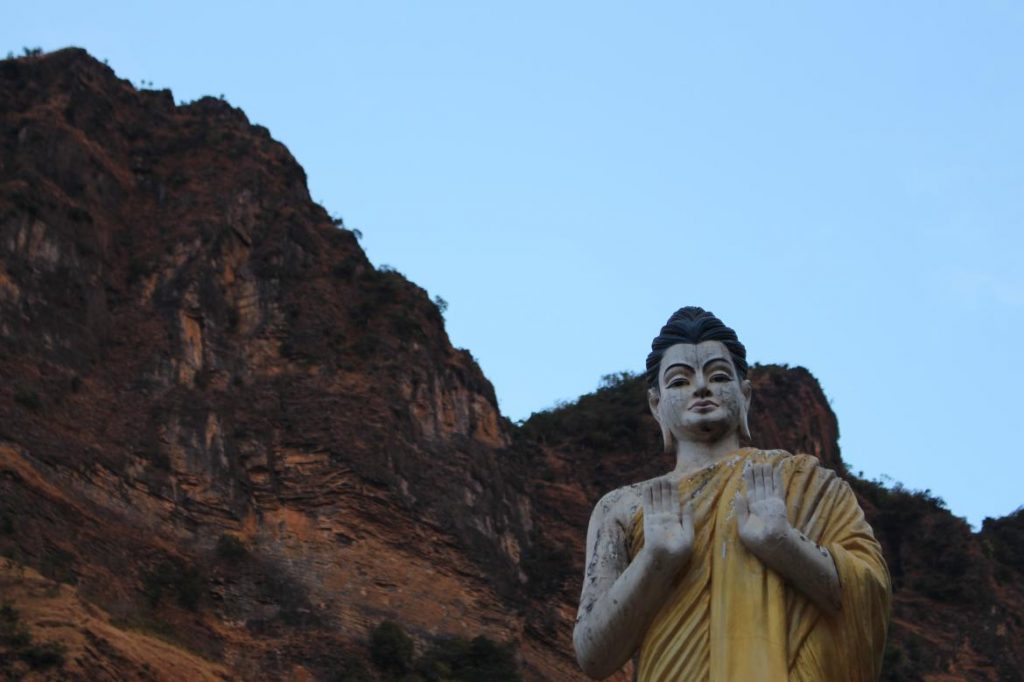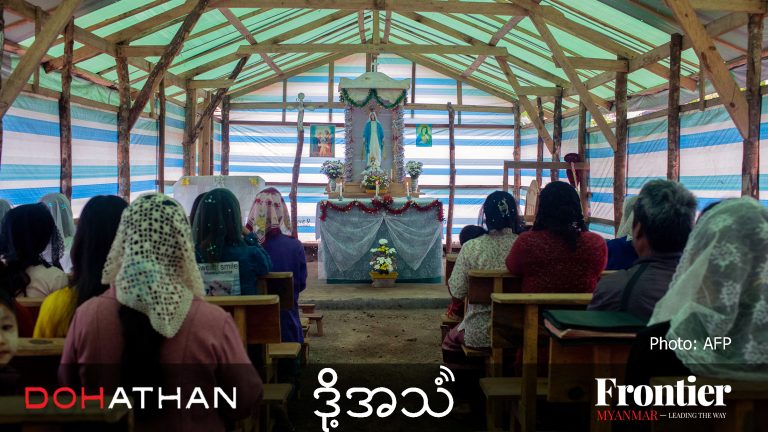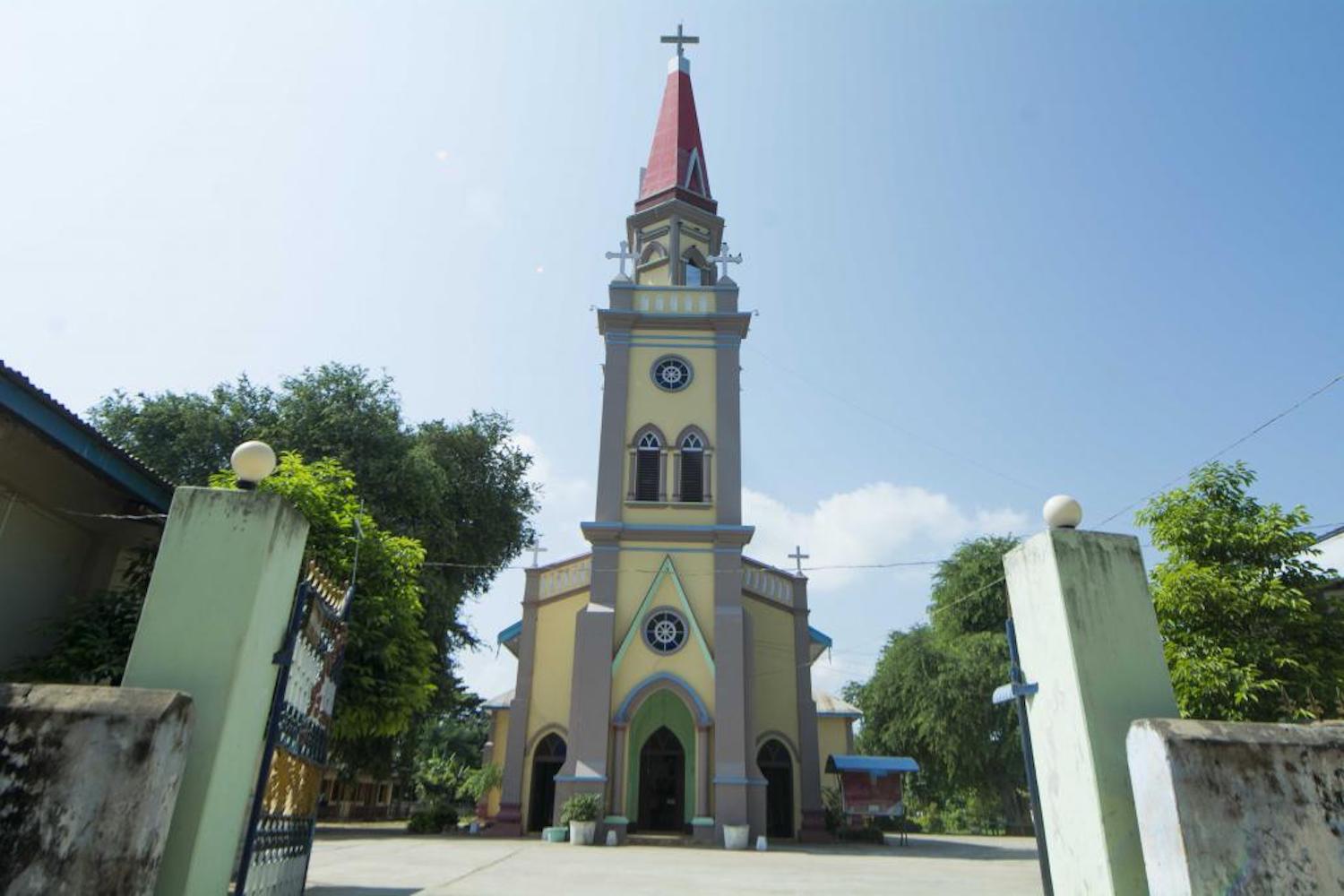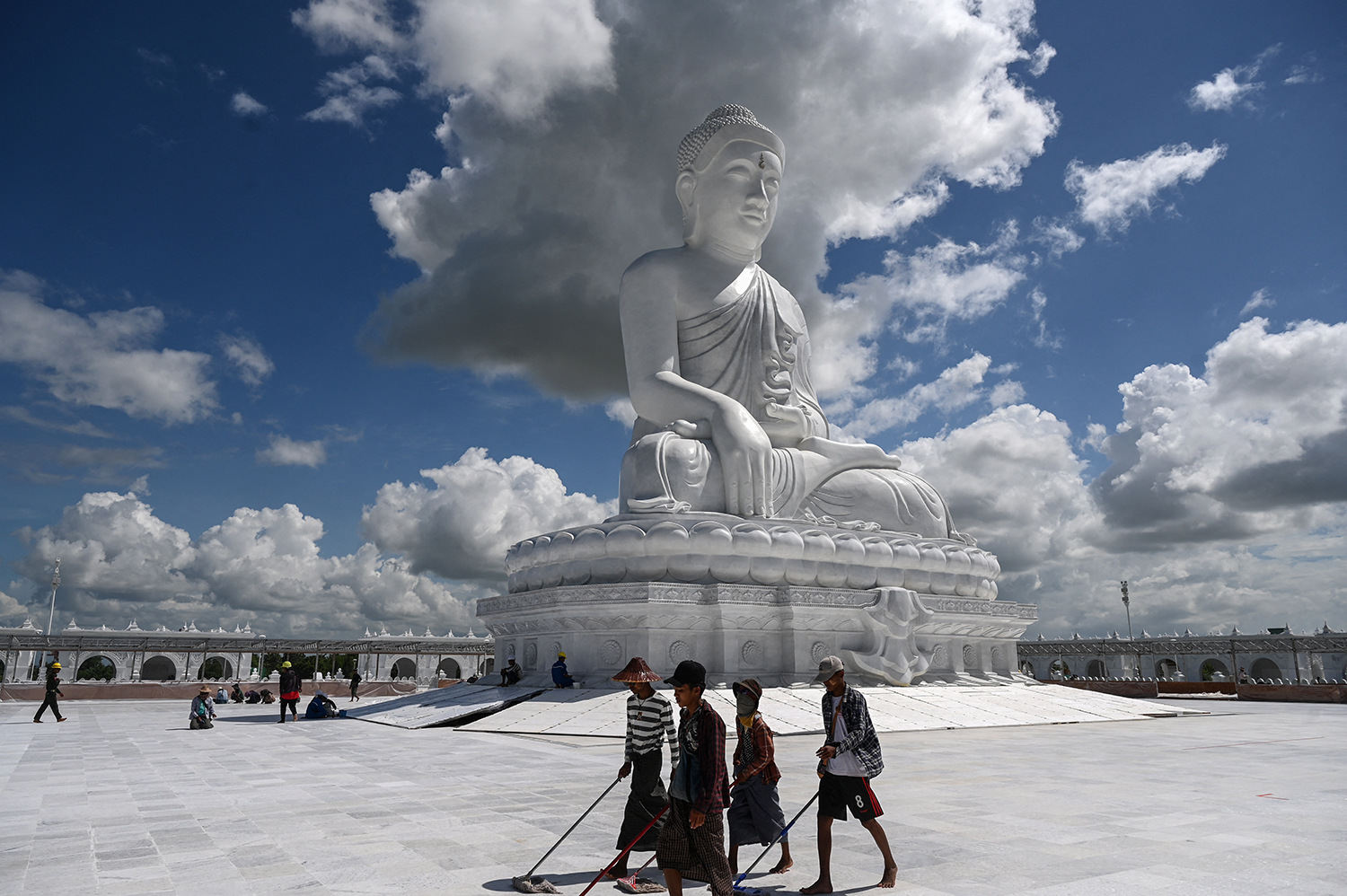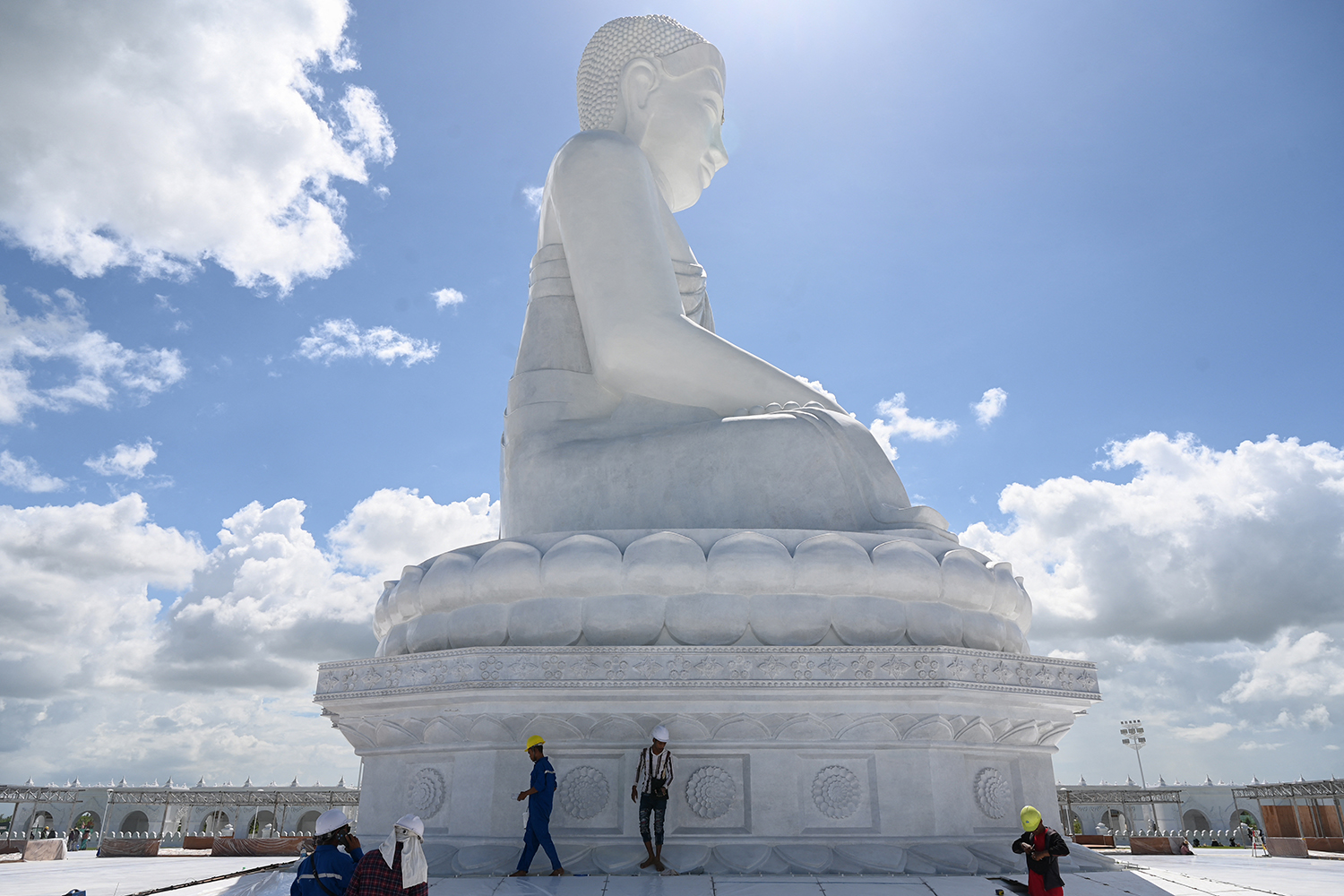YANGON — A Myanmar Christian leader appealed for calm on Wednesday after an influential Buddhist monk built pagodas within the compound of a church and near a mosque in Kayin State.
The incursions began last month when supporters of the monk Myaing Kyee Ngu erected a religious statue and planted a Buddhist flag on the church’s grounds in Hlaingbwe Township.
They returned on Saturday to erect a pagoda, according to local Anglican Bishop Saw Stylo.
The supporters have since moved on to build a pagoda near a mosque in a Muslim-majority village in the same township, he said.
“That is why I asked all local young people, whether they are Buddhist, Muslim or Christian, not to do anything wrong,” said Saw Stylo, who oversees Karen State, Mon State and Tanintharyi Region.
Support more independent journalism like this. Sign up to be a Frontier member.
Myanmar, which was stifled for decades under military rule, has long bristled with religious tensions between majority Buddhists and minority groups.
These surged sharply after a 2012 outbreak of violence in the western state of Rakhine between Buddhists and Muslim Rohingya left scores dead. Tens of thousands of Rohingya remain trapped in bleak displacement camps.
Buddhist nationalists have grown increasingly strident since then and their influence has been credited with swaying Aung San Suu Kyi’s party against fielding a single Muslim candidate in last year’s election, which swept her pro-democracy movement into power.
It is not clear what is behind the recent pagoda construction in Karen state. But the office of local MP Saw Chit Khin told AFP that Buddhist authorities had already written to the monk to urge him to cease building.
Images in local media showed dozens of people praying around the newly-erected white stupa.
“We feel very worried and sensitive about it. This might be political as well as religious,” said Saw Stylo.
“I am very interested in how the new government will bring Myanmar to a brighter future. That is why I requested everyone to stay calm in this case,” he added.
Christian communities in ethnic minority areas have for years complained of encroachments by zealous Buddhists, particularly through the presence of the military.
Christians and Muslims are each thought to make up over four percent of the population. But updated figures from a 2014 census in Myanmar — its first in three decades — have not yet been released amid fears that any perceived increases could further stoke animosity.


